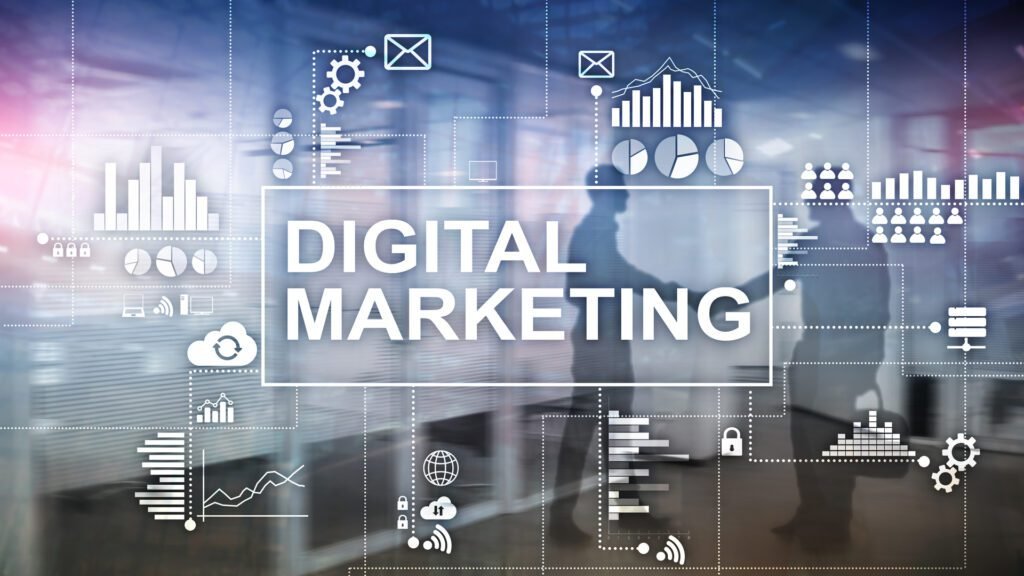Marketing, as we know it today, has evolved over the years. From the Industrial Revolution and mass production eras to the current digital age, marketing has undergone significant changes. The concept of marketing has also evolved from a production-oriented approach to a customer-oriented one. In this article, we delve into the historical perspective of marketing as it evolved over the years, the changing marketing landscape, and the importance of understanding customer needs to meet the evolving demands of the market.
What is the Marketing Concept?
Marketing is the process of identifying, anticipating, and satisfying customer needs and wants through the creation, promotion, and distribution of products or services. The marketing concept, which originated in the 1950s, focuses on satisfying customer needs and wants rather than just selling products or services. The marketing concept emphasizes the importance of understanding customer needs and creating products that have the ability to meet those needs.

The Evolution of the Marketing Concept
The marketing concept has evolved over the years. Initially, the focus was on producing goods efficiently and cost-effectively. This approach was known as the production concept. During the mass production era, attention shifted towards making products that could meet the needs of a larger market. This was known as the marketing era. Eventually, marketers realized the need to understand customer needs and wants in order to develop better products and services. This gave rise to the marketing concept.
The Importance of Understanding the History of Marketing
The history of marketing is important because it provides a roadmap of how marketing has evolved over time. Understanding marketing’s evolution helps comprehend the current state of marketing, serving as a guide to formulating viable marketing strategies. Marketing strategies should incorporate knowledge of how the various marketing eras and concepts evolved to avoid the marketing myopia that has plagued many companies in the past.
The Role of the Marketer in the Marketing Concept
The marketer plays a significant role in the marketing concept. They are tasked with researching customer needs and wants and analyzing data to extract insights that enable the development of products that meet those needs and wants. The marketer also designs and executes effective marketing campaigns that promote the products or services and build strong brand awareness. They continuously measure the outcomes of their marketing activities and adjust appropriately to ensure their efforts are effective.
Evolution of Marketing: From Production Concept to Societal Marketing
The Industrial Revolution and the Production Concept
The Industrial Revolution brought about the production concept of marketing. During this era, organizations believed that producing high-quality products at a lower cost was the key to success, and whoever produced more products would dominate the market. Companies focused their attention on producing large quantities of products to cater to the expanding markets. This was possible because of technological advancements such as the personal computer and, in later years, smartphones. The driving force behind the success of the production concept was the availability of goods. However, not much attention was paid to customer needs until the marketing concept came about.
The Mass Production Era and the Marketing Era
The mass production era was characterized by intensive production to meet the needs of a larger market. The focus was not exclusively on improvements in the production process but also on analyzing target markets, developing marketing campaigns, and advertising. Marketers realized that just producing more products was not sufficient. To succeed, they needed to satisfy customer needs better than their competitors. This led to the marketing era, where the focus on customer satisfaction became the priority.
The Rise of the Marketing Concept and Societal Marketing
The realization that satisfying customer needs rather than selling more products is the key to success marked the rise of the marketing concept. Under this approach, customer satisfaction drives all marketing strategies and activities. This gave rise to the concept of societal marketing, where the focus is not only on satisfying customer needs but also on doing so in a manner that benefits society. This process enabled companies to create a positive image and build strong brand equity.
Marketing in the Digital Age

The Evolution of Digital Marketing
Digital marketing involves using digital channels and assets, such as social media platforms, to reach target customers. Digital marketing for businesses began with websites and evolved with email marketing, search engine optimization (SEO), paid advertising, and content marketing. With the boom in social media, companies could market their products using platforms like Facebook, Twitter, and Instagram. Over time, digital marketing has continued to evolve with the adoption of mobile and smartphone technology.
The Impact of the Digital Revolution on Marketing
The digital revolution has transformed everything we know about marketing by providing marketers with new ways to engage and attract customers. With digital channels, marketers no longer need an extensive marketing budget to promote their products or services. They can reach millions of target customers with just a single marketing campaign, thanks to the widespread availability of the internet. Digital marketing has also changed how marketers measure their ROI. Marketers now use attribution models to determine which channels are producing the most effective outcomes.
Marketing Strategies in the Digital Age
Marketing strategies in the digital age primarily focus on leveraging digital channels to achieve an organization’s marketing objectives. With highly innovative features such as the ability to measure the effectiveness of campaigns with deep analytics, digital marketing provides immense potential for connecting with target customers. Most organizations now prefer to employ a mix of both traditional and digital marketing campaigns to cater to a diverse audience.
The Importance of Brand in Modern Marketing

Understanding brands and Branding
Branding and branding are critical elements of modern marketing. A brand represents how customers perceive a company’s products or services and the overall image of the organization. On the other hand, branding is the process of creating a unique image and personality that customers associate with the organization. Understanding brands and branding is essential and ensures effective marketing strategies that build robust brand equity and provide a positive ROI for the brand.
The Role of Brands in Marketing Strategies
The role of the brand in marketing strategies is of utmost importance. Branding enables businesses to connect emotionally with target customers to drive customer retention and loyalty. A strong brand provides businesses with a competitive advantage and ensures that they remain top-of-mind with their target customers.
Maximizing ROI through Effective Branding
Effective branding ensures that marketing campaigns produce a positive ROI for the organization. A well-executed branding strategy allows companies to build robust brand equity, ensuring customer retention and loyalty, which translates into higher profits over the long term.
Final Thoughts on the Marketing Evolution
The Changing Face of Marketing and the Need for Adaptation
The marketing landscape continues to change and evolve, and organizations must adapt to remain competitive in this fast-paced environment. Organizations must be agile and innovative to meet customer needs in a constantly evolving market.
The Importance of Understanding Customer Needs in Marketing Efforts
The evolution of marketing has culminated in the understanding that meeting customer needs is paramount to business success. Understanding customer needs is the cornerstone of effective marketing strategies.
The Future of Marketing: Challenges and Opportunities
The future of marketing holds both opportunities and challenges. Marketers that keep pace with changes in the market and customer needs will emerge as industry leaders. Challenges are expected, such as the need to navigate digital marketing channels skillfully, remain aware of the environmental impact of marketing, and adopt emerging technologies and innovations.





















